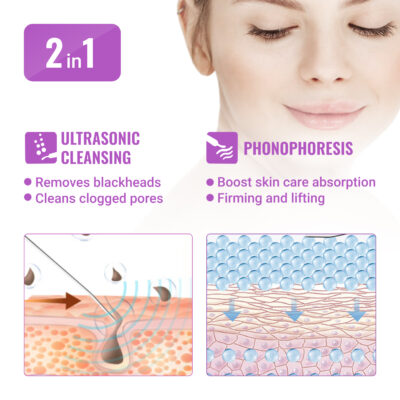
Understanding Your Skin Type
Before diving into a skincare routine, it’s crucial to identify your skin type. Here’s a quick overview:
– **Dry Skin**: Often feels tight and flaky, with visible dry patches.
– **Oily Skin**: Prone to excess oil production, leading to shine and enlarged pores.
– **Combination Skin**: A mix of dry and oily areas, typically with an oily T-zone (forehead, nose, and chin) and drier cheeks.
– **Sensitive Skin**: Easily irritated by skincare products or environmental factors, often exhibiting redness and discomfort.
– **Normal Skin**: Balanced with few concerns, neither too oily nor too dry.
Skincare Routine Essentials
Regardless of your skin type, a basic skincare routine consists of three fundamental steps: cleansing, toning, and moisturizing. Here’s how to tailor these steps to suit your skin type:
1. Cleansing
– **Dry Skin**: Opt for gentle, hydrating cleansers that won’t strip away natural oils. Look for creamy or oil-based formulas.
– **Oily Skin**: Choose foaming or gel cleansers with salicylic acid or benzoyl peroxide to control oil production and prevent breakouts.
– **Combination Skin**: Use a mild cleanser on dry areas and a targeted cleanser for oily zones.
– **Sensitive Skin**: Stick to fragrance-free, hypoallergenic cleansers that soothe and protect the skin barrier.
– **Normal Skin**: Enjoy the flexibility to use a variety of cleansers based on personal preference, focusing on maintaining balance.
2. Toning
– **Dry Skin**: Opt for alcohol-free toners enriched with hydrating ingredients like hyaluronic acid or glycerin to replenish moisture.
– **Oily Skin**: Look for toners containing witch hazel or tea tree oil to help control oiliness and minimize pores.
– **Combination Skin**: Use different toners on oily and dry areas to address specific concerns.
– **Sensitive Skin**: Choose calming toners with ingredients like chamomile or aloe vera to soothe and reduce redness.
– **Normal Skin**: Select toners based on additional skincare goals, such as brightening or clarifying.
3. Moisturizing
– **Dry Skin**: Opt for rich, emollient moisturizers that provide intense hydration and repair the skin barrier.
– **Oily Skin**: Choose lightweight, oil-free moisturizers or hydrating gels that won’t clog pores.
– **Combination Skin**: Use separate moisturizers for oily and dry areas, adjusting the formula as needed.
– **Sensitive Skin**: Stick to fragrance-free, non-comedogenic moisturizers that calm and protect the skin.
– **Normal Skin**: Enjoy the versatility of a wide range of moisturizers, focusing on maintaining skin health and balance.
Additional Skincare Tips
– **Exfoliation**: Incorporate gentle exfoliation 1-2 times per week to remove dead skin cells and reveal a brighter complexion. Avoid harsh scrubs, especially if you have sensitive skin.
– **Sun Protection**: Apply broad-spectrum sunscreen daily, regardless of skin type, to protect against harmful UV rays and prevent premature aging.
– **Serums and Treatments**: Target specific skincare concerns, such as fine lines, dark spots, or acne, with serums and treatment products formulated with active ingredients like vitamin C, retinol, or niacinamide.
– **Hydration**: Stay hydrated from the inside out by drinking plenty of water and incorporating hydrating foods into your diet, such as fruits and vegetables.
– **Consultation with a Dermatologist**: If you’re unsure about your skin type or experiencing persistent issues, consider seeking advice from a dermatologist who can provide personalized recommendations.
-

 €48.99
€48.99 -

 €79.99
€79.99 -

 €35.99
€35.99 -

 €54.99
€54.99 -

 €52.99
€52.99 -

 €49.99
€49.99 -

 €59.99
€59.99



